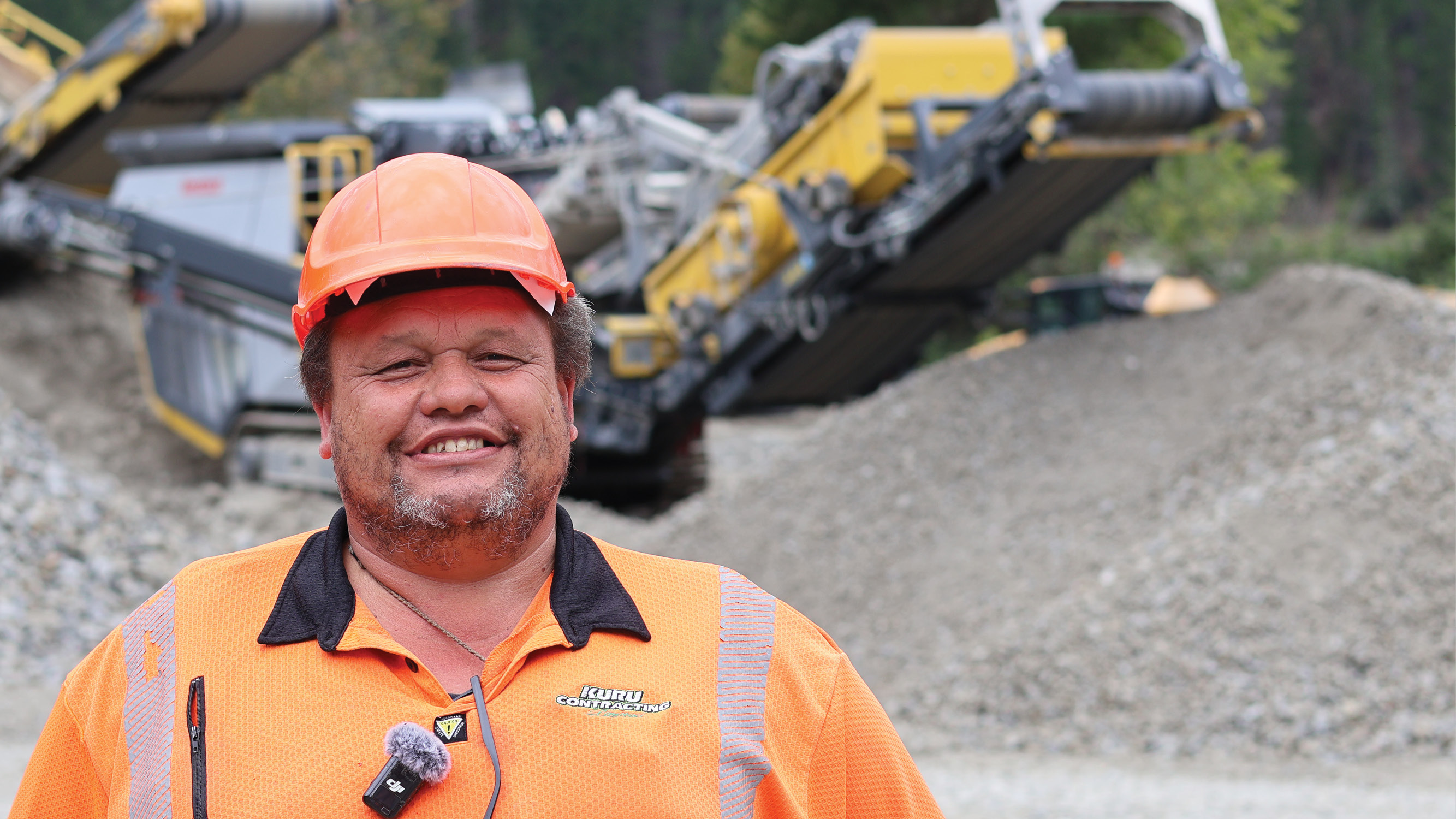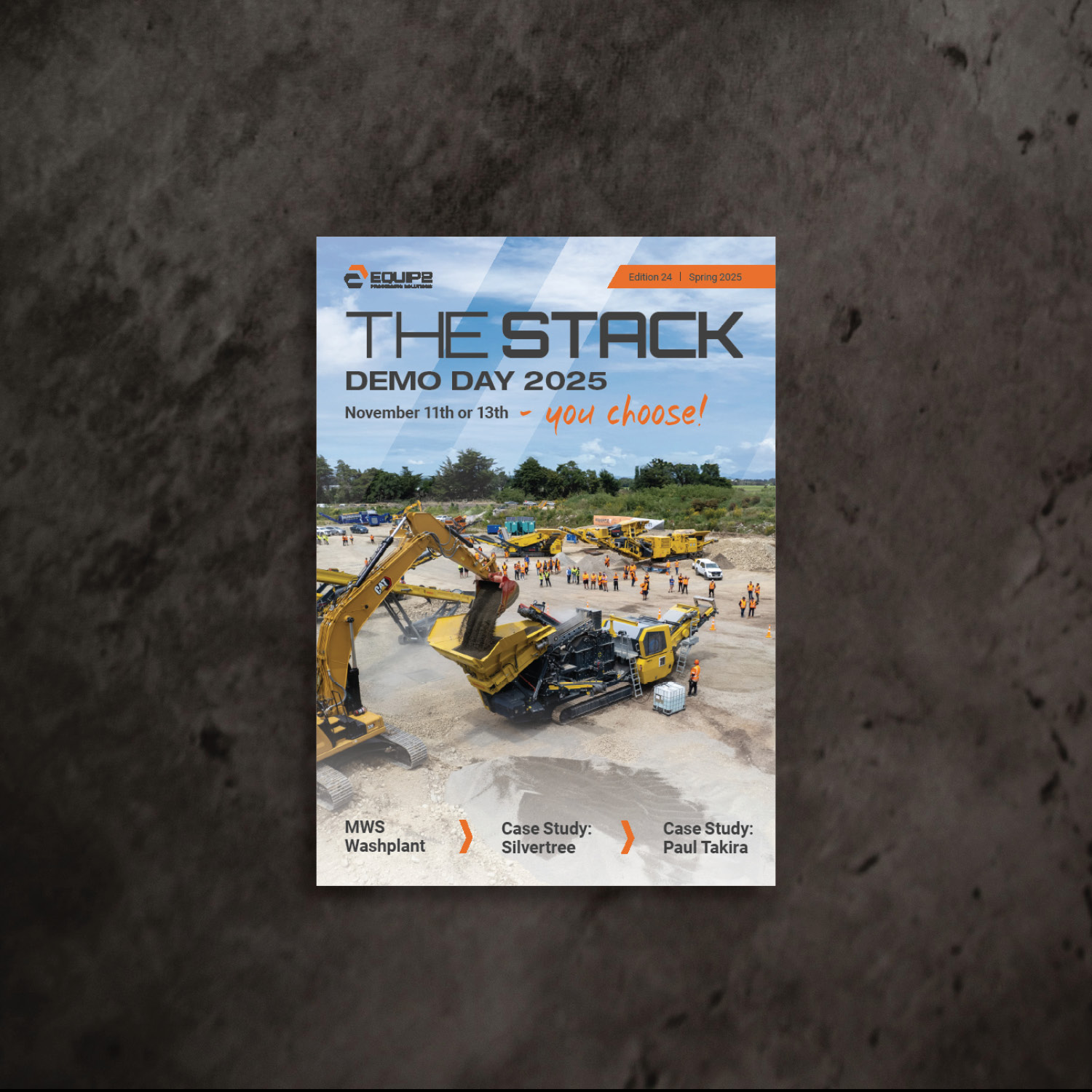Crushing the standard
How PT leads by example in the toughest terrain
In the rugged reaches of Gisborne’s East Coast, where storms meet stone and the terrain gives no freebies, crushing rock is more than just a job - it’s a rhythm, a standard, a reputation.
That’s where you’ll find Paul Takira, or PT, as everyone knows him.
“I’ve been called a lot of things, but mostly it’s just PT,” he laughs, standing in front of a roaring machine and a tight-knit crew that seems to move like clockwork. With seven years at Kuru Contracting and a background in high-output oil exploration, PT brings a level of urgency and professionalism that turns contract crushing into a finely tuned craft.
From the shifting riverbeds of the Waipaoa to the hard rock greywacke of Marawhara Mountain, PT and his team deliver thousands of tonnes of aggregate to one of their key clients, forestry operator Ernslaw One. And they do it with the kind of consistency and smarts that make even seasoned operators take notice.
Built for Challenge
Crushing on the Waipaoa River means one thing: adaptation. “This region’s had more than its fair share of rain over the past few years,” PT explains. “When the material’s wet, you can forget about pulling the fines out effectively.”
Instead of grinding to a halt, PT’s team pivots. They swap in larger bottom decks, reconfigure flows, or shift to maintenance and extraction until the material improves. It’s about knowing when to push and when to prepare. “If we’ve got the stockpile, we’ll wait for dry weather and drop a heap out fast.”
Flexibility in the field isn’t optional - it’s essential. And that’s reflected in the way PT manages people and production alike.
You’ve got to work with the material, not against it. If you fight the rock, you lose time. - Paul Takira (PT)
High Output, Low Fuss
Currently, PT’s running a lean three-man team at Waipaoa - and still hitting numbers that surprise even him.
“Most days, we’ll be through 900 or 1,000 tonnes by lunchtime,” he says. “Then we go and extract in the afternoon to stock up for the next day.”
That sort of tempo used to take double the time. One of the key upgrades? A new generation of impact crusher. “The old unit - we had to fight all day to hit 250 tonnes an hour. This new setup? I’ve sat on 300 an hour for 10 hours straight. No stress.”
It’s more than just throughput. The upgraded gear has cut fatigue, improved reliability, and unlocked a rhythm that lets the team produce more with less. And in this industry, that’s gold.
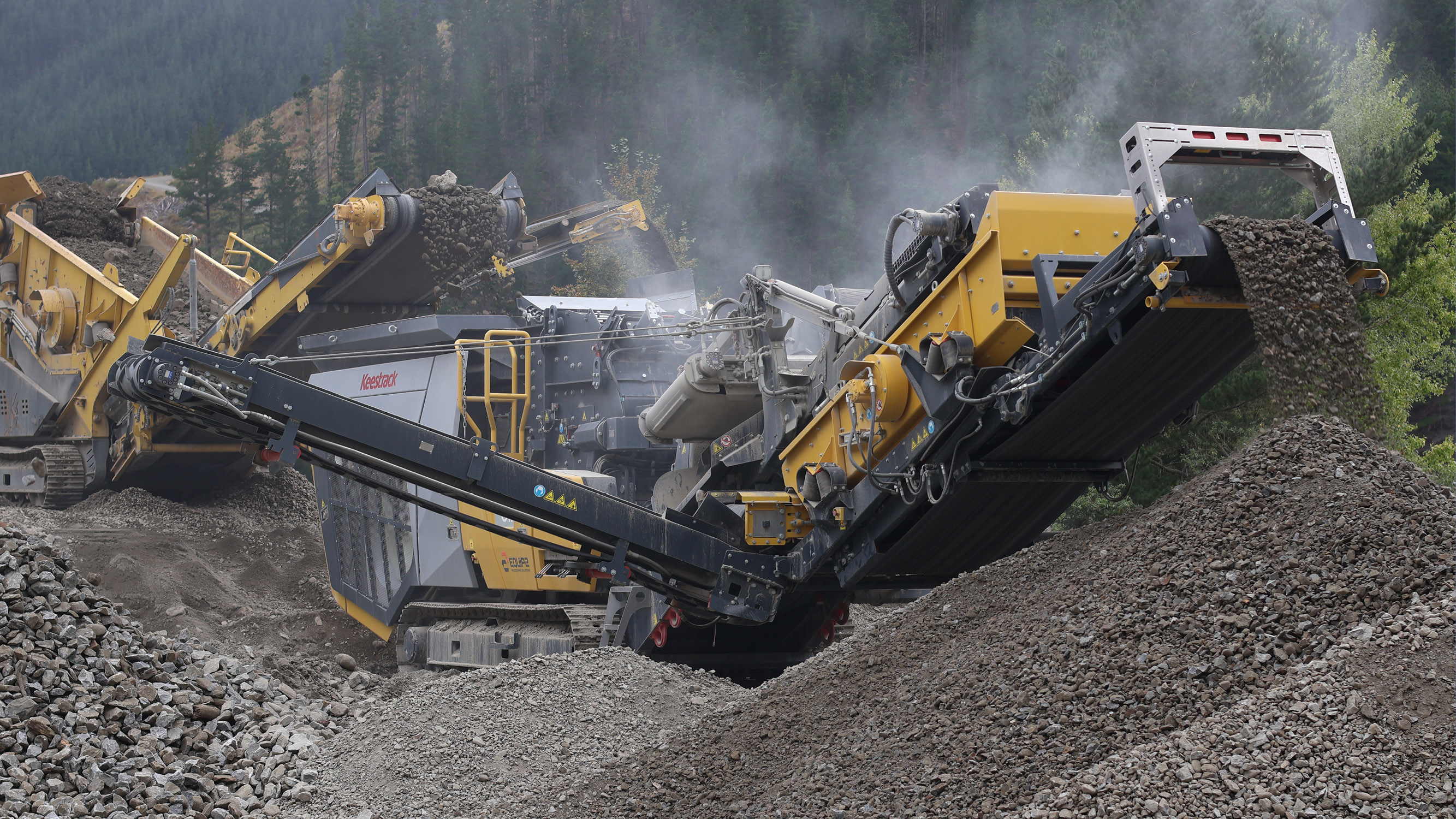
Efficiency upgrade: Crushing 1,000 tonnes before lunch - then extracting for tomorrow’s feed.
A Crew That Moves as One
What sets PT apart isn’t just numbers - it’s leadership. “I’m old school. I don’t look at resumes. I watch for attitude. Are they keen? Do they move with urgency?”
Once that spark is found, he invests in them. “You can teach anyone to quarry. What you can’t teach is attitude.”
His philosophy is simple: the crusher sets the pace. If the operator is on point, everyone matches the tempo - from extraction to loading to dispatch. And if they’re not? The whole system slips.
“You can ask any of my guys. Whoever’s on the crusher has to lead. That’s the standard.”
Reliable Gear, Smart Adjustments
Between two crews, PT’s fleet includes impact crushers, jaws, and screens - all under constant use. His approach to maintenance is proactive and planned. “You’ve got to do your daily inspections. Spot small issues early. Then slot in your maintenance during wet days or downtime.”
One of their veteran units - a K4 screen with 8,000+ hours - is still pulling its weight. “It’s reliable because we stay on top of it. That’s not luck. That’s how you run gear right.”
Recently, PT installed a secondary conveyor belt to split 100mm product - a minor adjustment that delivered major gains. “Took 20 minutes to install. Now, when we’re in finer material, I just turn it off and redirect back to the 65mm. Job done.”
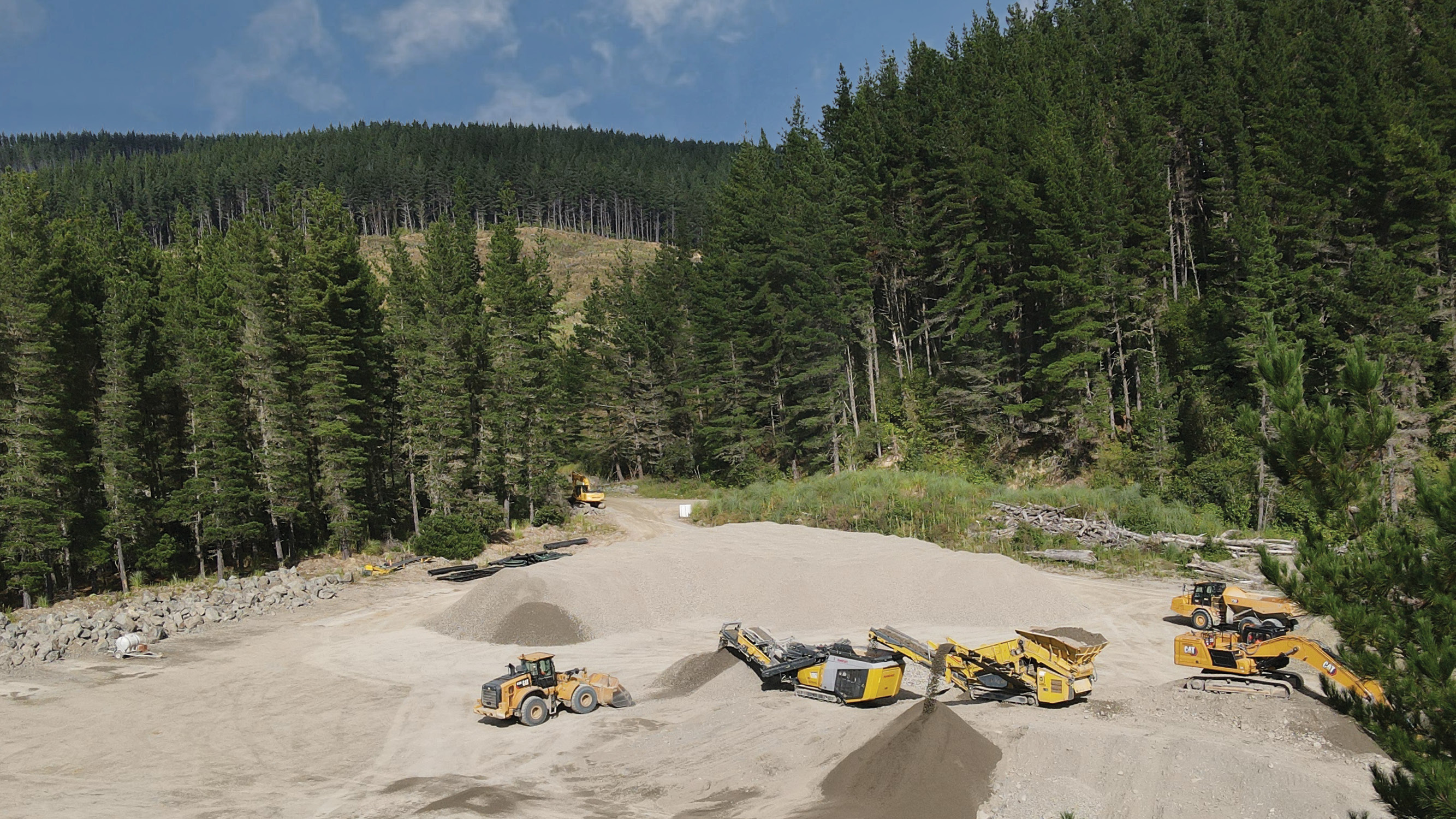
Quiet Support, Big Impact
In remote parts of New Zealand, backup can’t be an afterthought. That’s where PT values his long-term suppliers - not just for their gear, but for their follow-through.
“When you’re hours up the coast and something goes wrong, you want someone who answers the phone. Who knows your site. Who actually helps.”
PT recalls calling for more than parts - sometimes calling just to see if anyone knew of upcoming work. “Most of the time, they had a lead. Gave us a contact. That’s rare. That’s value beyond the machine.”
The equipment matters. But what keeps him coming back is the confidence that someone has their back when things get tight. “There are cheaper machines out there. But you’re not just buying a machine. You’re buying the backup that keeps it crushing.”
When Experience Meets the Right Tools
PT doesn’t need babysitting. His crushing pedigree, field leadership, and high-output culture speak volumes. But even seasoned operators know: to stay productive, you need smart, modern tools - and service to match.
It’s not about bells and whistles. It’s about keeping uptime high, shifting gears fast, and knowing your machine will do the job, day in and day out. And for PT, that’s where the right equipment and right support combine to extend his crew’s advantage.
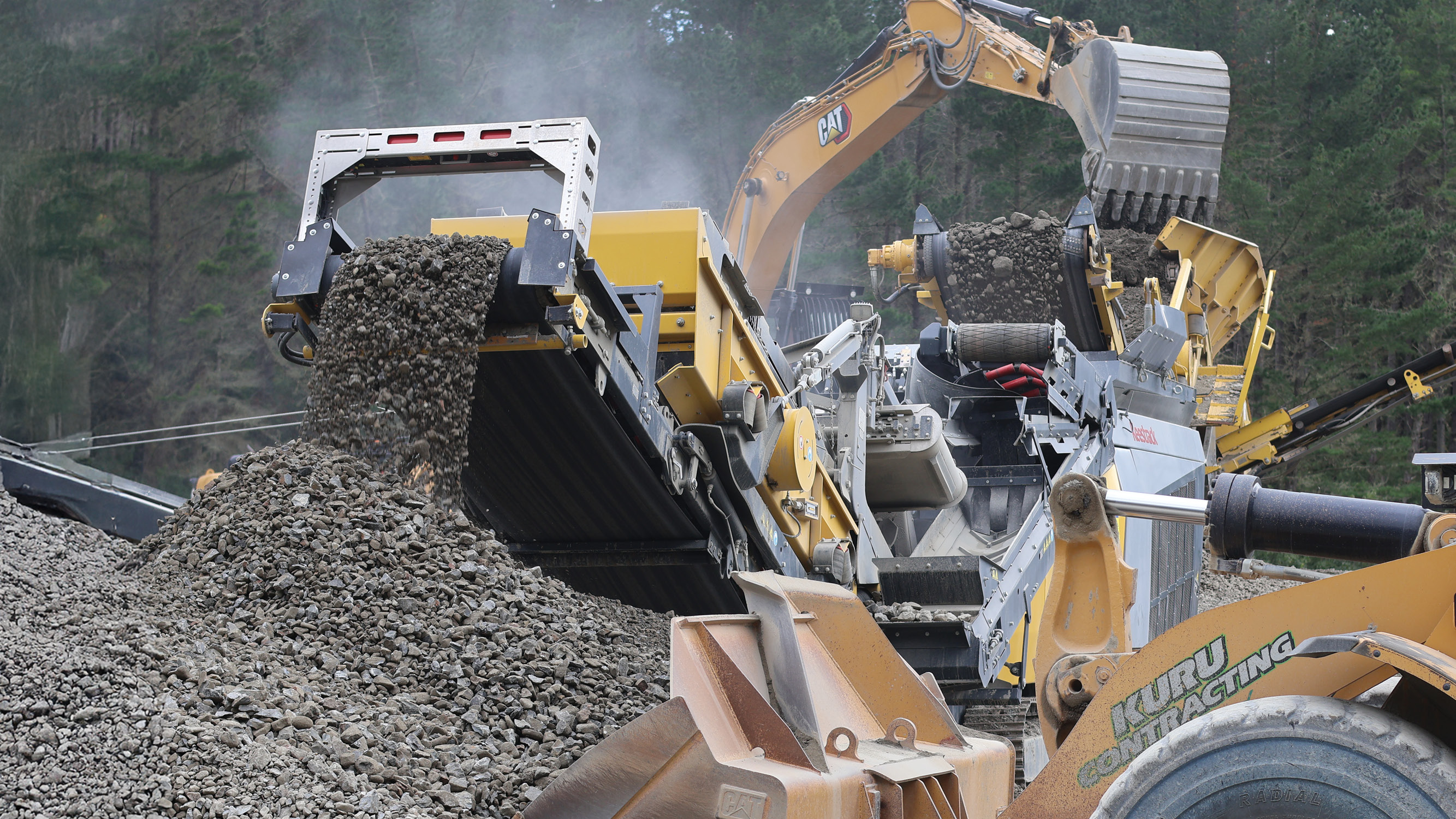
The only way I know is high production, high pace. That’s what we’re here to do.
More Than Just Tonnes
PT’s story isn’t about chasing records. It’s about setting a standard - leading a crew, reading the land, adapting to the work, and keeping the wheels turning.
Whether it’s river run or hard rock, summer dust or winter floods, he has to find a way. Because when you run crushing operations in a place like Gisborne, there’s no shortcut - only smarts, skill, and gear that works as hard as you do.
For others in the industry - whether you’re managing your first quarry or your fiftieth - there’s something to take from PT’s approach. Experience matters. Leadership matters. But so does who you choose to work with. The right equipment and a responsive partner can make all the difference when the pressure's on.
You can’t put a price on being able to call someone when you’re remote and stuck.
Key Takeaways from the Field:
> Efficiency at scale: One crusher, three men, 1,000 tonnes by midday.
> Adaptability built-in: Modular setup lets the crew shift output on the fly.
> Culture of urgency: Attitude-first hiring turns rookies into operators.
> Planned maintenance: Daily inspections + strategic downtime = minimal disruption.
> Support that stretches: From service calls to job leads, relationships count.


